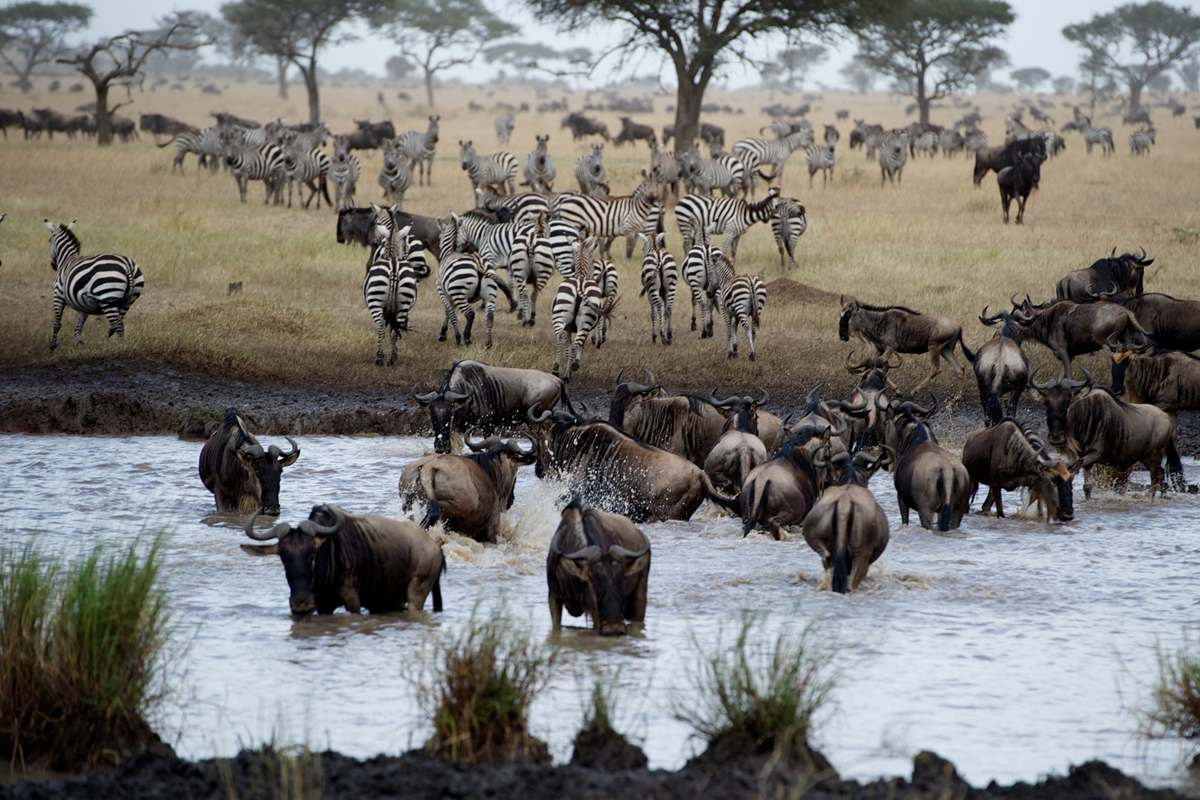Sustainable Eco-friendly Safaris Tanzania 2025
Tanzania is world-renowned for its incredible wildlife, breathtaking landscapes, and rich cultural heritage. As tourism continues to grow, the country is placing a strong focus on sustainable and eco-friendly safaris to protect its natural treasures. By 2025, Tanzania’s commitment to conservation and responsible tourism will ensure that safaris leave a positive impact on both the environment and local communities.
What is an Eco-Friendly Safari?
An eco-friendly safari minimizes negative environmental and social impacts while promoting conservation and local economic benefits.
Key Principles of Eco-Tourism
- Sustainable Lodging – Using renewable energy, minimizing waste, and conserving water.
- Low-Impact Transportation – Electric safari vehicles, walking safaris, and carbon offset programs.
- Responsible Wildlife Viewing – Maintaining safe distances and avoiding any interference with animal behavior.
- Community Involvement – Supporting local guides, businesses, and cultural tourism initiatives.
Unlike traditional safaris, which may have higher environmental footprints, eco-friendly safaris ensure that tourism contributes to wildlife conservation and sustainable development.
Tanzania’s Commitment to Sustainable Tourism
Government Policies and Conservation Efforts
Tanzania has implemented various eco-tourism policies to protect its national parks and wildlife reserves. The government collaborates with conservation organizations like:
- Tanzania National Parks Authority (TANAPA) – Enforcing eco-friendly tourism regulations.
- Frankfurt Zoological Society & WWF – Supporting anti-poaching initiatives.
- Local community projects – Encouraging sustainable tourism in Maasai villages.
Eco-Certifications and Sustainable Tourism Initiatives
- Eco-Certified Safari Lodges – Many camps have received Global Sustainable Tourism Council (GSTC) certification.
- Carbon Offset Programs – Some safari operators invest in reforestation and clean energy projects.
Best Eco-Friendly Safari Destinations in Tanzania
- Home to the Great Migration and big cat conservation programs.
- Several lodges use solar power and water recycling systems.
2. Zone de conservation de Ngorongoro
- A UNESCO World Heritage Site, integrating Maasai communities into conservation.
- Strict eco-tourism policies protect its fragile ecosystem.
3. Nyerere National Park (Selous Game Reserve)
- It is one of Africa’s largest protected areas with low visitor impact.
- Offers unique boat and walking safaris for a sustainable experience.
4. Ruaha National Park
- Home to some of Africa’s largest elephant populations.
- Fewer tourists = less environmental pressure.
Eco-Friendly Safari Lodges and Camps
Many lodges in Tanzania now follow strict eco-friendly standards:
- &Beyond Serengeti Under Canvas – A mobile tented camp using solar energy.
- Nomad Tanzania’s Greystoke Mahale – Built from reclaimed wood and supports local chimpanzee conservation.
- Asilia Africa’s Sayari Camp – Uses sustainable building materials and supports community projects.
Responsible Wildlife Viewing and Ethical Tourism
To protect wildlife, follow these ethical safari guidelines:
- Keep a Safe Distance – Never get too close to animals.
- Avoid Flash Photography – It can stress wildlife.
- Respect Nature – No littering, loud noises, or off-road driving.
Green Transportation and Low-Impact Travel
1. Electric Safari Vehicles
Some lodges now offer fully electric 4×4 safari vehicles, which reduce emissions and noise pollution.
2. Walking and Cycling Safaris
For a truly low-impact experience, guided walking safaris allow for close encounters with nature.
3. Carbon Offsetting
Many tour operators now invest in tree-planting projects to balance carbon emissions.
Sustainable Dining and Locally Sourced Food
- Farm-to-table dining reduces the environmental impact of imported goods.
- Some lodges partner with local farmers to source fresh organic food.
Community-Based Tourism Initiatives
Eco-friendly safaris don’t just protect wildlife—they also empower local communities:
- Maasai Cultural Tourism – Visitors can learn about Maasai traditions while supporting their economy.
- Women’s Craft Cooperatives – Handcrafted souvenirs provide income to local artisans.
Challenges and Future of Eco-Tourism in Tanzania
Despite positive efforts, challenges remain:
- Poaching and Illegal Wildlife Trade – Conservation groups continue to fight against poaching.
- Climate Change – Rising temperatures impact water sources and ecosystems.
By 2030, Tanzania aims to expand eco-tourism zones and promote even stricter conservation laws.
Tanzania is proving that responsible tourism can protect wildlife, support local communities, and provide unforgettable safari experiences. By choosing eco-friendly safaris, travelers play a role in preserving Africa’s natural heritage for future generations.
FAQs
1. What makes a safari eco-friendly?
An eco-friendly safari minimizes environmental impact through sustainable lodging, responsible wildlife viewing, and low-impact travel.
2. How can I reduce my environmental impact while on safari?
- Choose eco-certified lodges
- Support local businesses
- Avoid single-use plastics
3. Are electric safari vehicles available in Tanzania?
Yes! Some lodges now offer electric safari jeeps for quiet and zero-emission game drives.
4. What are the best eco-friendly lodges in Tanzania?
Top choices include Sayari Camp, Greystoke Mahale, and Serengeti Under Canvas.
5. How does sustainable tourism benefit local communities?
Eco-tourism creates jobs, funds conservation, and supports community projects like schools and healthcare.












